
Here's a deceptively simple and incredibly beautiful film, Alexandr Ptushko's 1961 romantic fantasy, Scarlet Sails (Алые паруса). It says something about the interpretive skills of Soviet authorities that something so frivolous as fantasy films were allowed to flourish under their noses, and Scarlet Sails is a startlingly subversive example. But the film's story of two people who fall in love through a shared passion for stories and dreams has greater and lovelier resonance than simply subversion.
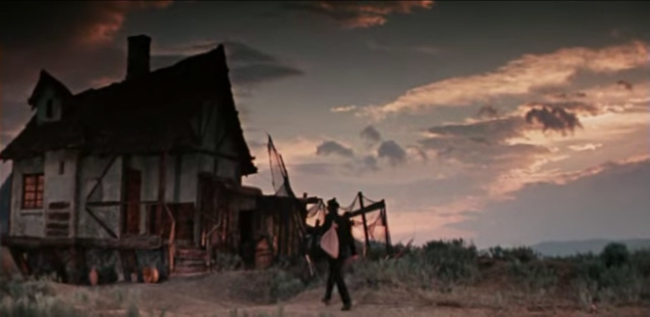
In the early 19th century a man named Longren (Ivan Pereverzev) returns from sea to find his wife has died and his infant daughter is being cared for by a neighbour. Forced to stay at home to care for the girl, he uses his knowledge of sailing vessels to make toy ships he sells in town. But he has a hard time finding anyone who will place much value in such things as children's toys, as much as his daughter loves them. So he has a hard time making ends meet.
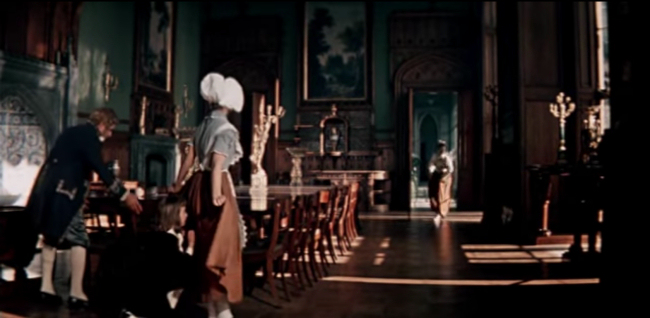
Meanwhile, the son of a wealthy count continually disappoints his stern father. The boy continually dodges his governess to waste time pretending to be a sea captain with a servant in the attic. A parallel is already drawn between the boy and girl as people who value fantasy over pragmatism.
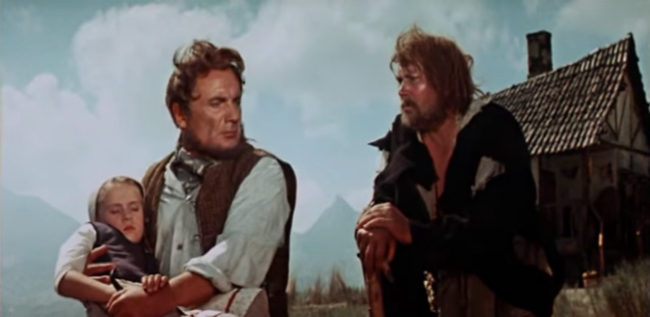
In one moment with a particularly striking anti-Communist subtext, the girl is sleeping in her father's lap when a homeless man approaches and asks Longren for some tobacco. Longren says his tobacco is in his other vest and doesn't want to wake his daughter to fetch it--significantly, he won't interrupt her dream for the needs of the common man. Considering the symbolism of the common people in Soviet Propaganda films like Eisenstein's it's hard to see how this scene wasn't considered outright dangerous.

Playing with a little red sail boat in a creek one day, the girl runs across a mysterious man (Nikolay Volkov) who, charmed by her, decides to give her a prophecy--one sunny day she will marry a prince who will come for her in a ship with red sails. Years later, the now teenage girl (Anastasiya Vertinskaya) still contentedly believes she will see red sails one day, despite having to endure mockery from all the common people of the town.
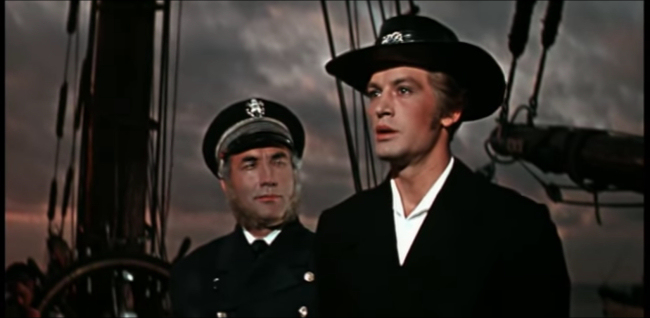
The boy (Vasily Lanovoy) has grown up too and decides to leave his father's expensive home to live the life at sea he always dreamed of. You don't need to be Nostradamus to guess the trajectory of the plot from here but the crucial thing is how the characters make decisions in an effort to reach the happy ending. Both characters, particularly the boy, need extraordinary sensitivity, imagination, and restraint--and the ability to ignore the mockery of the common townspeople in order to utilise these qualities.
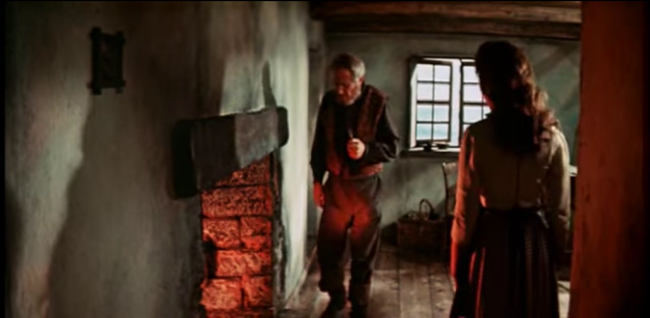
As always, Ptushko crafts a visually stunning film with wonderful sets lit in a powerful chiaroscuro. Longren's face at the beginning of the film when he realises his wife is dead is so quiet and stunningly effective. The whole film is available on YouTube with English subtitles here.
Twitter Sonnet #1093
for Stephen Hawking
Confirming numbers launched a blurry shot.
Arriving lifts the sails from off the mast.
A world developed from a glowing dot.
The lunar porcupines assembled fast.
Attempts to find the disk refract the line.
A useless trail of dust concludes the flight.
Within the picture depths restructured time.
A skillet claimed a rapid eggy right.
Designing grids have dipped in distant black.
Behind a fan the hands of clocks increased.
The motion carried took the minutes back.
A fractured cup returns in single piece.
A paper folded fields a larger plane.
The oceans wait in stars like drops of rain.

No comments:
Post a Comment